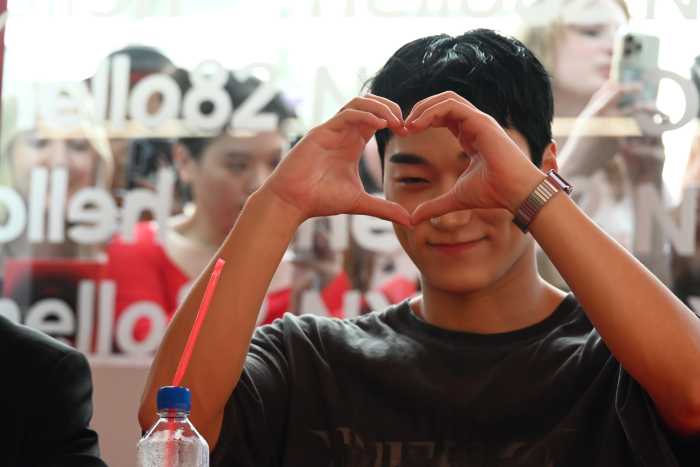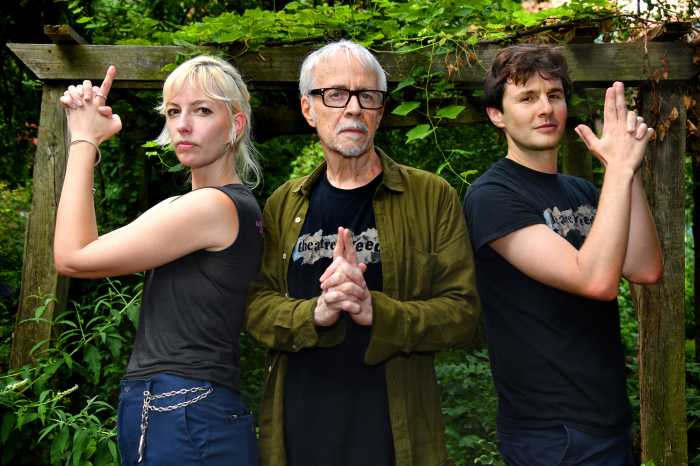The 1964 murder of 28-year-old Kitty Genovese in Kew Gardens shamed New York City as an urban dystopia of heartless indifference.
Researchers intrigued by the story of 38 people indifferently witnessing Winston Moseley stalk and stab Genovese in what was allegedly three separate attacks coined the term “the bystander effect” to describe observers’ decreased sense of responsibility towards a victim as the number of witnesses increase.
A new documentary “The Witness,” featuring Kitty’s brother Bill Genovese — who was 16 at the time of her death and is now 68 — shows how the public who knew little about her life was also grossly misinformed about her death.
Director James Solomon, who had long been interested in making a film about the iconic crime, ramped up shooting Genovese’s examination into how his sister died after the two read a stunning 2004 story by Jim Rasenberger in The New York Times disproving many aspects of the venerated paper’s own earlier accounts of the murder.
The film, now playing at the IFC Center and Film Society of Lincoln Center, and opening Friday at Kew Gardens Cinema, reflects Rasenberger’s conclusion that the narrative of mass apathy was a canard unfair to the people of Kew Gardens and offers up other stunning insights as well.
A friend and neighbor, Sophia Farrar, rushed down in her night clothes to rescue Kitty, but instead wound up cradling her friend as she died.
Moseley returned once, not twice, to finish killing Kitty and it was a neighbor yelling at him to leave her alone who interrupted the first attack.
While a police log documented only one call, other neighbors insisted they, too, had called the cops to report her pleas for help.
While no one knows how many confused residents were wakened in the early morning hours by her “please help me!” screams, there was no way 38 people passively watched Genovese being attacked and murdered.
Moseley — a burglar who had raped and killed at least one other woman prior to murdering Kitty — was captured five days after Kitty’s murder by an East Elmhurst man who watched him robbing a neighbor’s home and tackled him to the ground. And Kitty, who had been briefly married, was not living with a roommate at the time of her death, but a romantic partner, Mary Ann Zielonko.
The film “is about flawed narratives,” said Solomon of his documentary, which took 11 years to make. “Each of us have these flawed narratives: They can occur in the middle of the night when you hear a scream or occur across 50 years.”
It also shows the folly of relying on any single source for truth, added Genovese.
Determined never to surrender to apathy, Bill joined the Marines two years after the death of his sister to fight in Vietnam. At the age of 19, working as a field intelligence scout ahead of his platoon 15 miles south of Danang, he was the victim of a man-detonated booby trap.
“Here’s the deal. This is the eye opener. Flying through the air six, seven, or ten feet up I thought I was okay and realized I didn’t feel any pain. My ears were ringing and I didn’t hear anything,” he said.
Not realizing his platoon was under attack, he couldn’t understand why his comrades didn’t immediately help him. Bleeding out, “I had this flashback to Kitty, imagining what my sister went through: ‘This is what it must have been like for her.’” Sustaining massive injuries, both his legs were amputated.
Genovese “is the embodiment of trauma. He gets the trauma” of Kitty “because he lived it,” said Solomon. Genovese’s gentle, astonishingly non-judgmental demeanor helped to persuade many reluctant principals in the film to cooperate. As a man in a wheelchair “he’s accustomed to people feeling uncomfortable when they meet him and he’s become extraordinarily adept at putting people at ease,” Solomon said.
What does Genovese make of the man who saw Kitty in the vestibule after she was stabbed, and who called a friend and went to sleep rather than helping her?
“I feel he was scared and reacted as a scared person. Plenty of people react as a scared person. Are you going to go around hating everyone who is scared?” asked Genovese.
Combat taught him, he said, that while we typically “react the way we are trained,” we are all flawed and few of us are consistently heroic: “It’s not a Hollywood deal where everyone is Tom Cruise every day.”
Genovese, a retired finance professional, considers himself “an empiricist who takes a philosophical approach” and was heartened to find that “we are not that depraved as a species,” as the original account of his sister’s murder would have readers believe.
The greatest reward of his research was “the discovery of Sophia Farrar. That helped me” process the death of his beloved older sister. “My only regret is that my parents had passed,” never knowing Kitty had not died alone.
And the moral of the film? It is that we are all, he said, responsible for one another.
“When you think it’s someone else on the street,” it’s helpful to think it could be someone you love. Behave, Genovese implored, as if “it’s you on the street.”




































